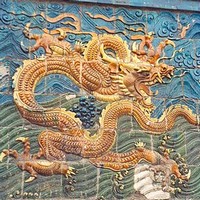Writing in Foreign Affairs this month, Henry Kissinger opined that, when it comes to the future of Sino-American relations, “conflict is a choice, not a necessity.” Those are some serious words from one of history’s all-time realists, but more important than his analysis is the fact that he even felt the need to issue that public statement regarding these two ultimately codependent superpowers. A trusted part-time adviser to President Barack Obama, Kissinger knows he has the president’s ear on China, the target of this administration’s recently announced strategic military “pivot” toward East Asia.
The codependency at work here isn’t the same narrow sort of “mutually assured destruction” that we had with the Soviets during the Cold War. This codependency is far more inescapable, in that it cannot be signed away with diplomatic treaties. Instead, it is a long-term trade and investment codependency that will define the very nature of globalization in the decades ahead. Simply put, the global economy -- and China’s export-driven rise -- can no longer survive on U.S. domestic consumption alone.
America has simply reached the historical limit of its credit, a limit represented not by the federal debt ceiling, but by the widespread global perception that our best days are behind us absent significant restructuring across our economy and government. By and large, neither U.S. political party wants to hear this, much less act upon it. Instead, we Americans either assume that our next “exceptional” rebound will unfold naturally or believe that it can somehow be achieved by sabotaging China’s rise. Our truly unimaginative political leaders in both parties reach for both straws simultaneously, a combination of hubris and fear that is both odd and depressing.

